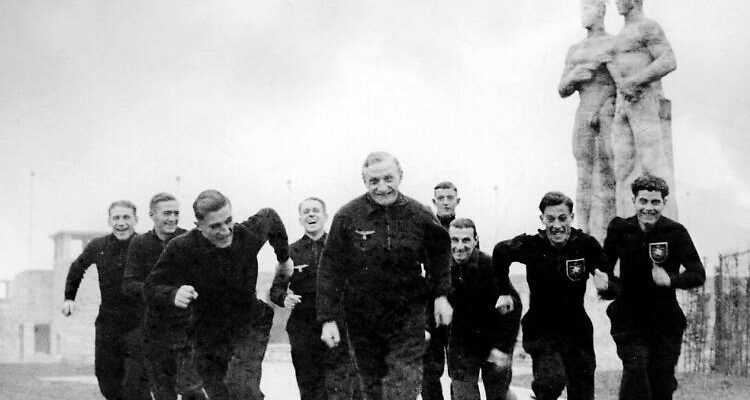Sunday May 16, 2021
The Breslau-Elf was born
When Herberger played cheering football
Instead of running, fighting and drill-like drills, Sepp Herberger dreams of a beautiful football game. And the German national coach succeeded in shaping his team anew in 1937. The coach experiences the finest hour against rival Denmark. But politics quickly ruined his work.
Sepp Herberger had finally had enough of the classic German football virtues. “It is my unalterable will to break with the rigid, drill-like drilled game of our team,” wrote the national coach in his diary in January 1937. Instead of just running and fighting, his team should in future please shine with football elegance and playful delicacies.
Herberger almost completely mixed up his team in terms of personnel – and the measures were already bearing fruit four months later. May 16, 1937 stands for one of the greatest moments in German football, his team was hardly recognizable on that day in what was then known as the Hermann Göring sports field in Breslau. The national team outclassed Denmark, which is considered an equal rival, with 8: 0 (4: 0).
But the way the German team performed was a signal far more than the result itself. “The Breslau-Elf played very quickly, often directly, the game was torn up over the wings. For the first time a style emerged that can be described as a German style,” said Herberger successor Helmut Schön later.
It doesn’t work with the new ones
Herberger (4th from left) put together a talented group in the mid-30s.
(Photo: picture alliance / Schirner Sportfoto)
Otto Siffling from Mannheim alone scored five goals, and the Danes could not have complained even about a double-digit result. Tactical sophistication, lightning-fast play and fine combinations – the so-called “Breslau-Elf” was born. Germany won ten out of eleven games with the core structure of that team in 1937, and it is still the best annual record for a DFB team to this day.
The beginning of an era was on the horizon, but then everything turned out differently. Instead of being the top favorite for the 1938 World Cup in France, the Breslau team’s structure fell apart because of a political measure taken by the National Socialists. After Austria was annexed to the German Empire, Herberger had to use at least five Austrians per game against his will at the World Cup.
The newly thrown together squad didn’t work at all at the World Cup, and the first round against Switzerland was over. Ultimately, the politics of the Breslau-Elf blocked their only real chance for coronation. Because the next World Cup did not follow until twelve years later because of the Second World War.
.
